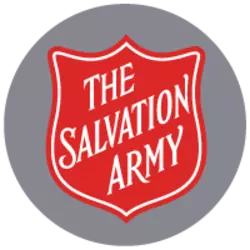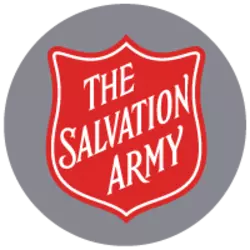In 1955, the Salvation Army flag was 'unfurled' for the first time in the new Essex town of Harlow - in the home of an elderly, almost-blind couple who had been Salvationists in the East End of London. Moving to Harlow, they longed for the Army and were thrilled when one day, returning from his afternoon shift as an ambulance driver, Brother Fred D'ampney called at their house.
Brother D'ampney - was a soldier at Woodford before he moved and for some weeks searched the new district to find signs of the movement he loved. When he drew a blank with his inquiries he wrote to headquarters asking if Army operations could be commenced there, and also inserted an advertisement in the local paper requesting any Salvationists in the area to contact him.
In due course Brother Bram and Sister Barbara Clark linked up with this 'pioneer'; recently married, they had moved out from Acton, where both had been active in the corps. In fact, they had desired to become Salvation Army officers but ill health had prevented the fulfilment of their hopes.
Early in 1957 Colonel Horace Mead, then the Divisional Commander for North London visited the town, it was decided that Brother Clark should be responsible for young people's work and that a weekly meeting should be held.
Great joy was experienced when a hall was hired for Sunday activities and, in April of the same year, the Divisional Commander and Mrs Mead, with the support of Wood Green Band and the local comrades, conducted Sunday afternoon open air witness and in the evening led a Salvation meeting attended by almost 100 people, in which the Corp's first seeker was registered.
During the ensuing years the young people's work continued to progress, although the senior activities encountered many problems. At various times, the corps was directed for Ware and Bishops Stortford and also had officers appointed for short periods, but with no hall of its own in which meetings could be held things proved difficult.
Gatherings during the week were held in Salvationists' homes and much of the success of the present well-established Salvation Army community is attributed to the regular prayer meetings. As many as twenty-two people gathered on occasions in the small rooms available and the petitions offered so persistently are certainly being answered.
During 1961 regular Sunday meetings were commenced in another 'common room' and the home league was also started. More transfers from other corps added to the fighting force and are now among the local officers at Harlow - Corps Sergeant-Major and Home League Treasurer Mrs Frank Ford from Letchworth, Young Peoples Sergeant-Major and Home League Secretary Mrs George Bush from Plumstead and Corps Treasurer and Songster (Guide Captain) Mrs Brian Anker from Ilford.
Impressed by the enthusiasm of these Salvationists when he visited Harlow early the following year, the Divisional Commander, Lieut-Colonel Wesley Grottick, appointed Captain Ann Hooper to take command.
Despite the continuing need to move from place to place for various activities the corps flourished. August of that same year saw the farewell of the first cadet to enter the International Training College from the new corps - Brenda Price, now Mrs Captain Ivor Jackson.
On Saturday August 8th 1964 the British Commissioner William F Cooper officially opened the Harlow Salvation Army hall, seating nearly 200 people. A capacity crowd attended the dedication service, civic leaders and church friends being among those present.

